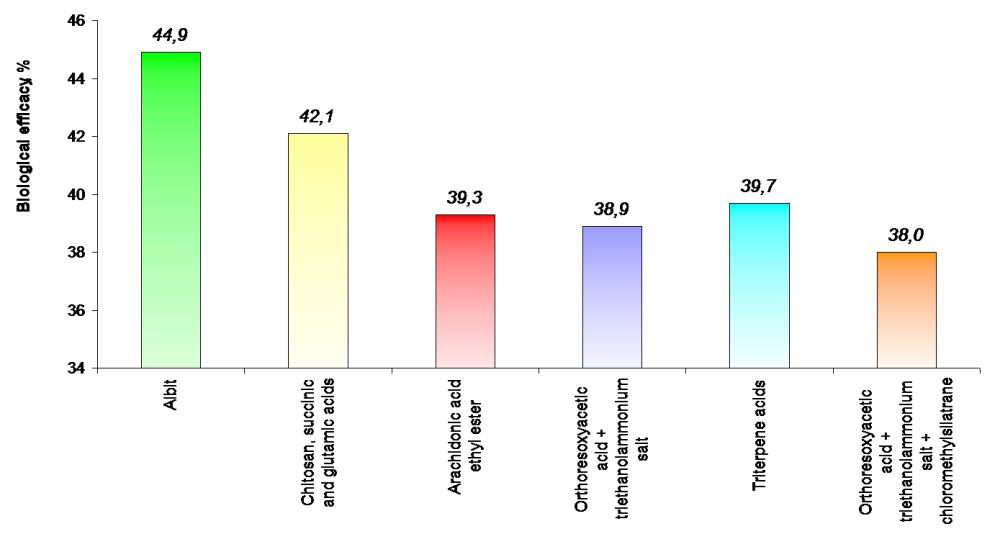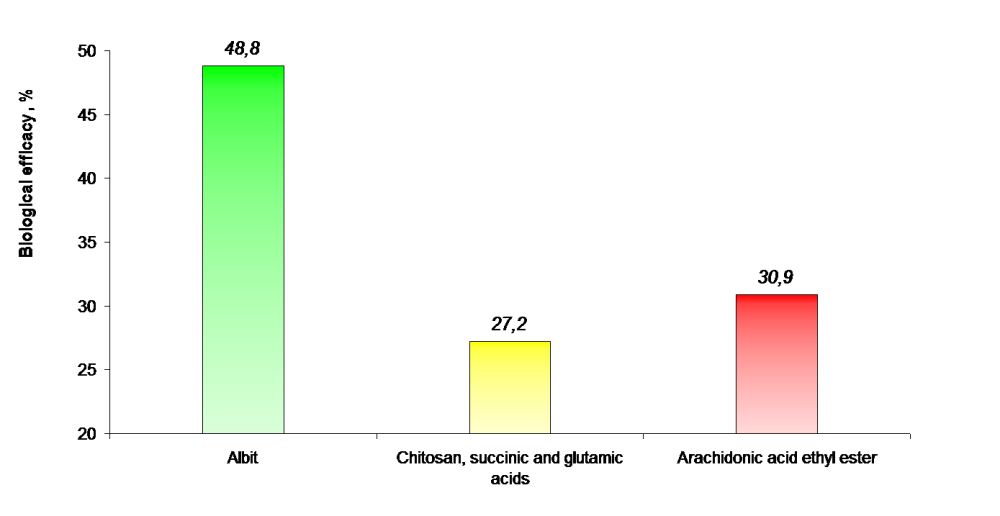 |
An innovative plant growth promoter for organic and traditional farming
|
Damage of plants by nematodes |
|
Plant immunizers (such as Albit) can often increase the crop's resistance to nematode-induced damage.
The mechanisms of plant response to pathogens and various stresses are of a similar nature. This is why immunogenic properties of Albit also enhance the ability of plants to resist stress, – be it a mechanical damage caused by nematodes and insects, pesticide use, or drought and other abiotic factors. It is known that mutually intersecting signal transmission systems are involved in this process when plants are damaged by insects and phytopathogenic microorganisms. In this case, lipoxygenase, linolenic and jasmonic acids are activated. Due to the unified nature of the mechanisms of signal transduction and the immune response, the systemic acquired resistance (SAR) of a plant that occurs in response to pathogen damage can increase resistance to pests as well. This way immunizers like Albit that can induce plant resistance to pathogens and stresses can promote cross-resistance to other stresses.
It is also established that with Albit plants can quicker recover from mechanical damage (see http://www.albit.com/2/2_09.php). In this regard, it is not surprising that Albit activates in response to nematode damage. The All-Russian Research Institute of Biological Plant Protection of the Ministry of Agriculture of Russia conducted a greenhouse experiment studying the potential of using plant growth regulators (generally used for immunization and stimulation of plant growth) to increase the resistance of tomato and cucumber crops to root-knot nematodes. The results showed that using Albit on tomatoes during the growing season was more effective than seed treatment: bio-efficacy of Albit was 44.9% (Fig. 1).

Fig. 1. Bio-efficacy of plant protection products used against root-knot nematodes on tomatoes by spraying (All-Russian Research Institute of Biological Plant Protection, 2005)
In cucumber study, Albit was used to increase the crop’s resistance to southern root-knot nematode. With this crop, on the contrary, it was the seed treatment that reduced the nematode infestation: bio-efficacy of Albit was 48.8% (Fig. 2). Thus, Albit can reduce nematode damage nearly by half (data sourced from Bukhonova Y.V. Elicitors in greenhouses // Plant protection and quarantine, 2005, No. 9., p. 25).

Fig. 2. Bio-efficacy of plant protection products used against root-knot nematodes on cucumber seeds as a pre-sowing treatment (All-Russian Research Institute of Biological Plant Protection, 2005)
| NOTICE: | Information contained on this page is provided according
to the Terms and Conditions located at
www.albit.com/application/disclaimer.php
|